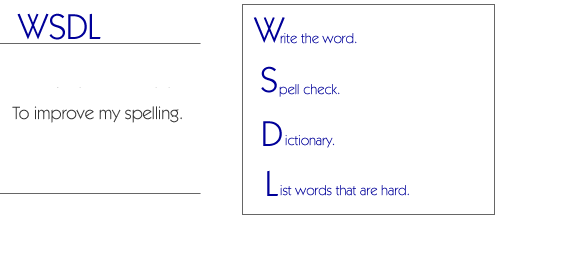W
rite.
- When you can't think of how to spell
a word, or someone has pointed out a word that you spelled incorrectly,
or the spell check shows that a word is spelled incorrectly,
try writing it several ways to see what "looks right."
- When you write it over, try to think
of the sounds of the letters or how the word looked when you
read it. Try to use the same cues you used to figure out how
to read the word to help you figure out how to spell the word.
|
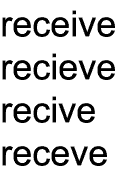 |
S
pell check.
- If you are using a computer, run the
spell check.
- Look at each of the choices and try
to figure out which is spelled the way you want it to be spelled.
If necessary, write down the choices to see which "looks
right."
|
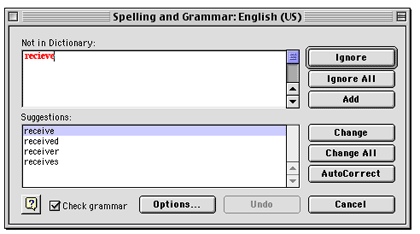 |
D ictionary.
- If you don't have a computer or if
the spellcheck doesn't help, look the word up in a dictionary.
- It may be hard to look a word up if
you don't know how to spell it. Write the word different ways
and look up each spelling until you find the word.
- If you can't remember which spelling
goes with two words that sounds alike (e.g., pail vs. pale),
look both of them up in the dictionary and check which definition
fits the word that you want to use.
- Once you find the word, look at the
spelling, the syllables, the root word, and the definition as
ways to help you remember.
|
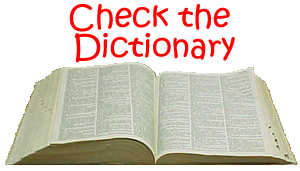 |
L
ist words that are hard for you.
- Make a list of words that you need
to write a lot, but can't remember how to spell.
- Highlight the letters that are hard
for you to remember. For example, if you have difficulty remember
the spelling of separate because you usually write it
as seperate, underline or color code the first a
to help you remember it.
- Keep this list in a handy place so
that you can refer to the spelling of these words whenever you
need them.
|
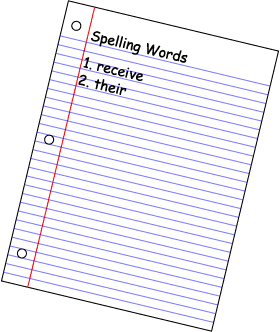 |
|

